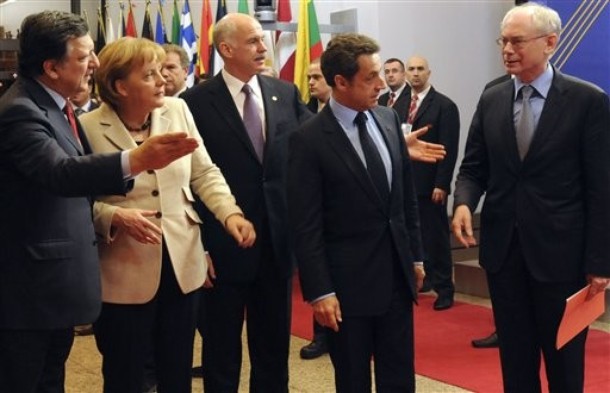
From Richard N. Haas, the Washington Post: In the coming decades, Europe’s influence on affairs beyond its borders will be sharply limited, and it is in other regions, not Europe, that the 21st century will be most clearly forged and defined.
Certainly, one reason for NATO’s increasing marginalization stems from the behavior of its European members. The problem is not the number of European troops (there are 2 million) nor what Europeans collectively spend on defense ($300 billion a year), but rather how those troops are organized and how that money is spent. With NATO, the whole is far less than the sum of its parts. Critical decisions are still made nationally; much of the talk about a common defense policy remains just that — talk. There is little specialization or coordination. Missing as well are many of the logistical and intelligence assets needed to project military force on distant battlefields. The alliance’s effort in Libya — the poorly conceived intervention, the widespread refusal or inability to participate in actual strike missions, the obvious difficulties in sustaining intense operations — is a daily reminder of what the world’s most powerful military organization cannot accomplish. . . .
Moreover, intimate ties across the Atlantic were forged at a time when American political and economic power was largely in the hands of Northeastern elites, many of whom traced their ancestry to Europe and who were most interested in developments there. Today’s United States — featuring the rise of the South and the West, along with an increasing percentage of Americans who trace their roots to Africa, Latin America or Asia — could hardly be more different. American and European preferences will increasingly diverge as a result. . . .
For the United States, the conclusions are simple. First, no amount of harping on what European governments are failing to do will push them toward what some in Washington want them to do. They have changed. We have changed. The world has changed.
Second, NATO as a whole will count for much less. Instead, the United States will need to maintain or build bilateral relations with those few countries in Europe willing and able to act in the world, including with military force.
Third, other allies are likely to become more relevant partners in the regions that present the greatest potential challenges. In Asia, this might mean Australia, India, South Korea, Japan and Vietnam, especially if U.S.-China relations were to deteriorate; in the greater Middle East, it could again be India in addition to Turkey, Israel, Saudi Arabia and others.
None of this justifies a call for NATO’s abolition. The alliance still includes members whose forces help police parts of Europe and who could contribute to stability in the Middle East. But it is no less true that the era in which Europe and transatlantic relations dominated U.S. foreign policy is over. The answer for Americans is not to browbeat Europeans for this, but to accept it and adjust to it.
Richard N. Haass is president of the Council on Foreign Relations. The director of policy and planning at the State Department from 2001 to 2003, he is the author of "War of Necessity, War of Choice: A Memoir of Two Iraq Wars." (photo: AP)
Image: ap%206%2016%2010%20Barroso%20Merkel%20Papandreou%20Sarkozy%20Rompuy.jpg
